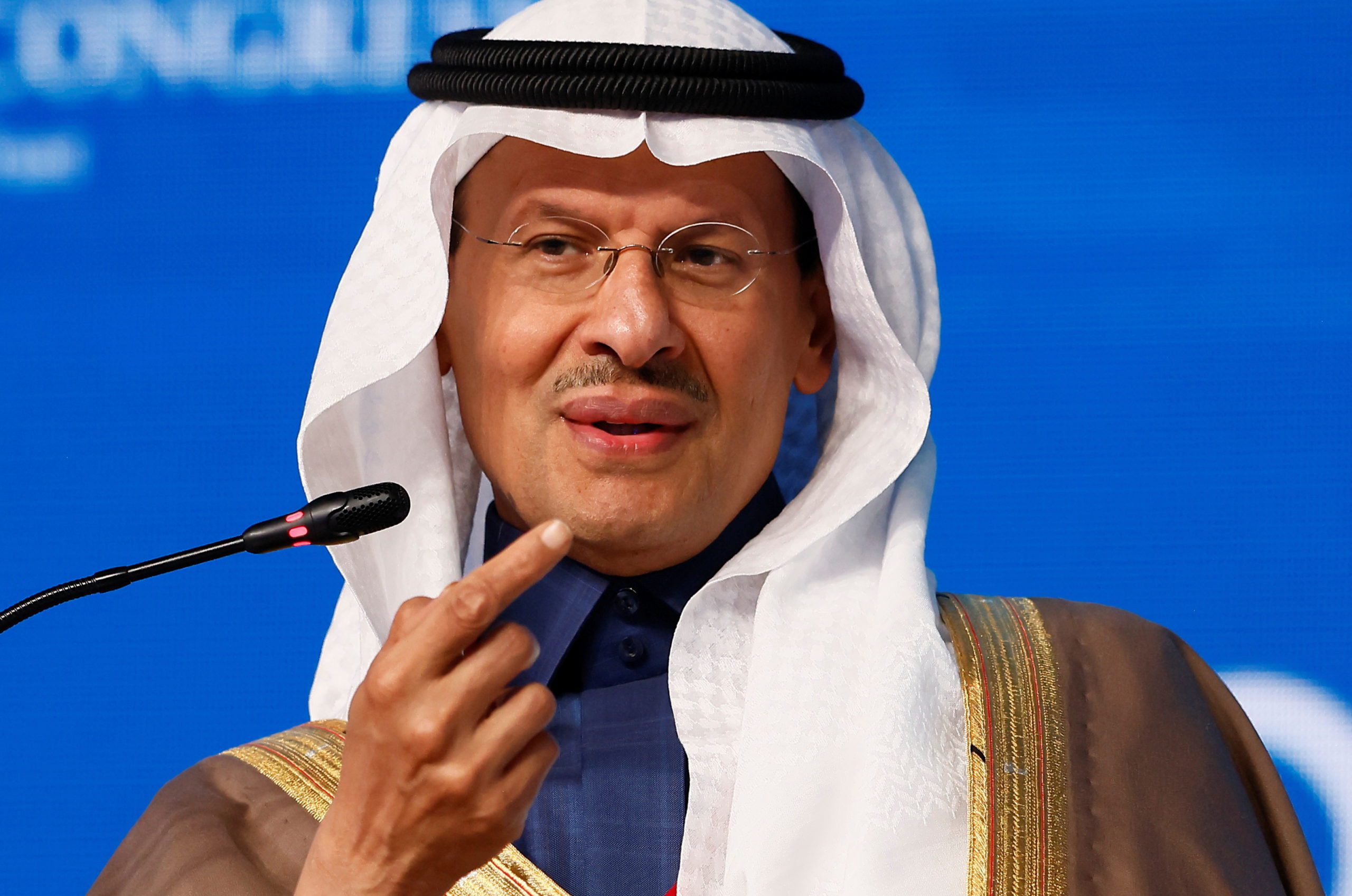(S&P Global Platts) Saudi Arabia’s 2060 net-zero emission target may be derailed by “unforeseen circumstances” because achieving the target depends on a number of factors, including evolution of technology, the country’s energy minister said Nov. 3.
“Depending on what happens, we could bring that [2060] date much earlier and I hope much earlier, and it could be also for all sorts of unforeseen circumstances, we may have to go beyond the 2060, but it’s all relevant to economic diversity, economic well-being and the evolution of technology,” Prince Abdulaziz bin Salman told a virtual event organized by The Economist.
Saudi Arabia, the world’s biggest oil exporter, is seeking to reduce its emissions while at the same time boosting its oil production capacity to cater to global crude demand.
Saudi Aramco, which plans to become carbon neutral by 2050, plans to raise its maximum sustainable oil capacity to 13 million b/d by 2027 from 12 million b/d now in accordance with the government directive that was announced in April 2020.
The minister again criticized the International Energy Agency’s net-zero roadmap outlined in a May report that sparked controversy.
La La Land scenario
The IEA’s roadmap concluded that if the world were to slash carbon emissions to net-zero over the next three decades, global oil supplies would need to shrink more than 8% annually, down to 24 million b/d in 2050, from pre-pandemic levels of just above 100 million b/d. That would mean no new oil and gas upstream projects should be developed.
“Even before the La La Land scenario of the IEA, in April 2020 in the midst of the huge part of the crisis we made an announcement that Aramco itself will be moving from 12 million [b/d] capacity to 13 million [b/d],” the minister said.
“We know that there will be demand for Saudi oil. We remain to be the least cost producer and we see demand for oil coming either from the lack of supply from others or the maintenance of demand.”
If there was no demand for Saudi oil, it would be consumed domestically, jacking up the country’s emissions, the prince argued.
“If growth of energy market does not happen and our economic diversity does not happen we will have to consume most of these hydrocarbons domestically and therefore our emissions will be higher,” he said.
Crude burn
Saudi Arabia currently burns around 1 million b/d of liquids and crude, mainly for power generation. The country plans to diversify its energy mix to come 50% from renewables and 50% from gas due to “embarrassing inefficiencies and embarrassing abuse of resources” that have deterred this oil from being exported, the minister added.
Saudi Arabia plans to rely on shale gas to boost its production of the commodity and meet its 50:50 energy mix target, he said.
“We will be bringing more shale gas, which is a field down in south east part of country,” the prince said.
“That shale gas will deliver, with the additional resources that we have, the 50% conversion to take away all that liquids and crude oil out.”
The field will also produce ethane and NGLs, which will help the kingdom earn more money while diversifying its energy mix.
“We can improve the economies of that shale gas by taking these liquids and converting it into chemicals or even exporting it,” the minister said.
“More importantly that field will be partially dedicated to create the blue hydrogen.”
Green hydrogen
Saudi Arabia is also developing its green hydrogen strategy and expects to sign a deal soon with a “French” party for a project, while the UK is interested in green hydrogen projects in the country.
Saudi Arabia’s ACWA Power, US-based Air Products and futuristic, zero-carbon city Neom are developing a $6.5 billion green hydrogen and ammonia project. The project, which will produce 240,000 mt/year of green hydrogen to create 1.2 million mt/year of ammonia, is expected to start in the first quarter of 2026. Neom is part of Saudi crown prince Mohammed bin Salman’s flagship Vision 2030 project, intended to diversify the economy away from oil.



